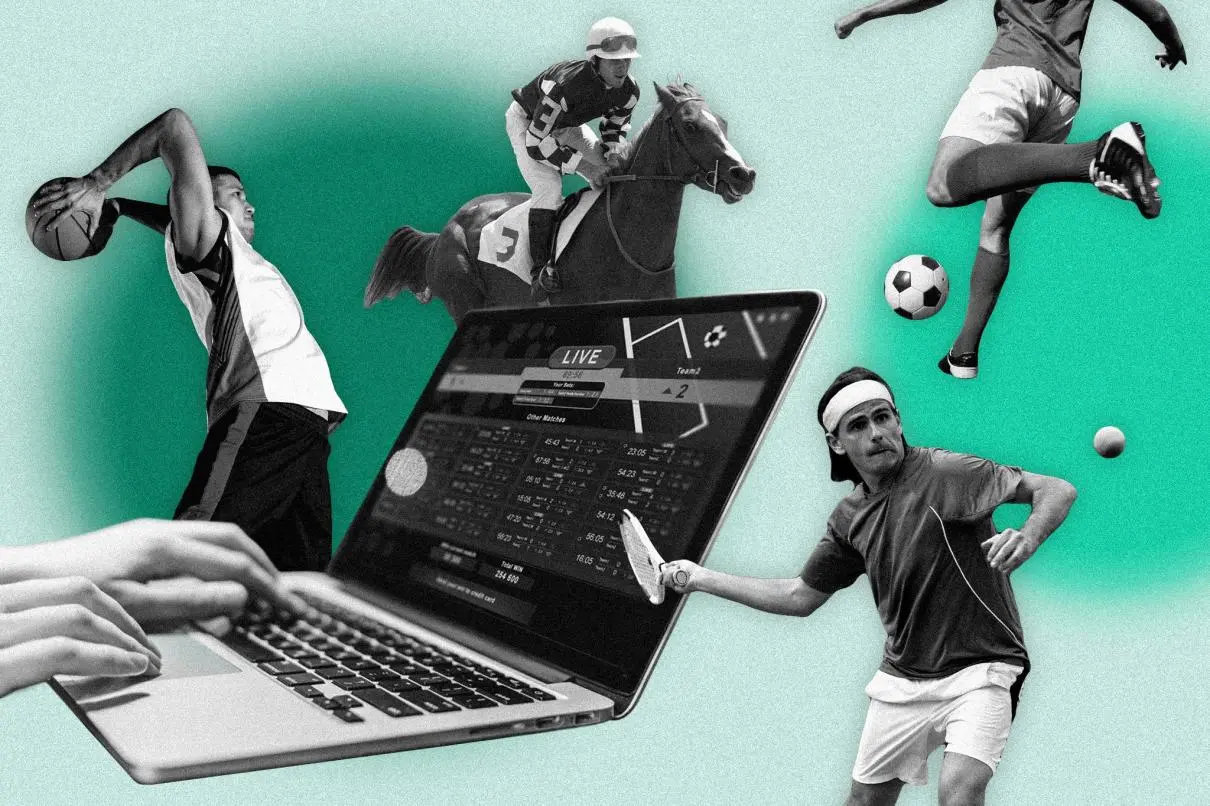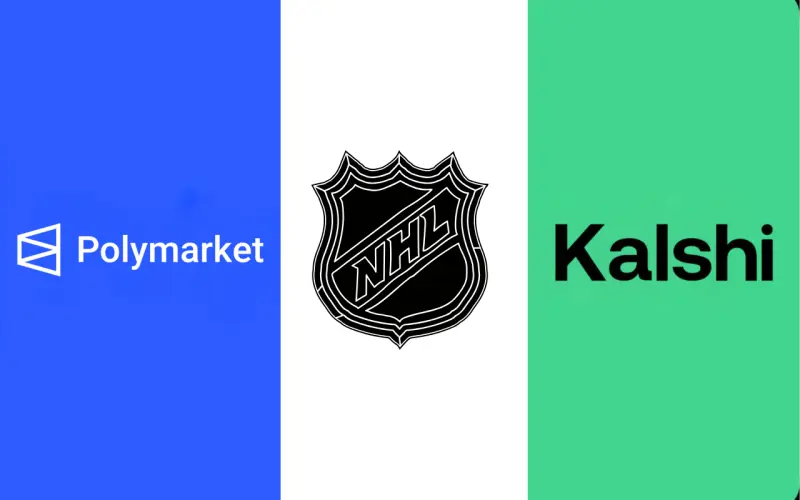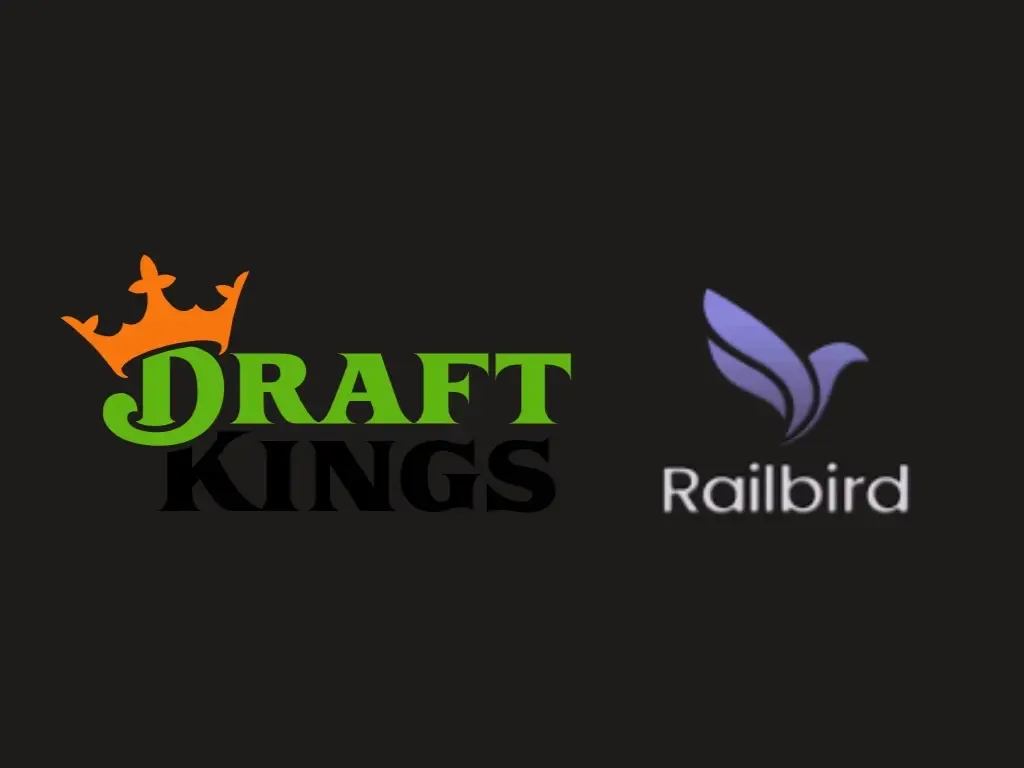Author: PANews, Zen
As Kalshi and Polymarket further extend their business focus into the sports sector, the prediction market has reached a turning point this year with both "volume and price rising": media reports indicate that Polymarket is negotiating a new round of financing with a target valuation of $12-15 billion; Kalshi completed new financing mid-year, with a company valuation of about $2 billion.
At the same time, the monthly transaction volume and daily active users of leading platforms have significantly increased—The Wall Street Journal reported that in October, the combined transaction volume of the two major platforms surged by over 90% month-on-month; most of Kalshi's trading volume growth comes from sports contracts, making sports predictions its main growth engine.
Driven by both industry and capital, Kalshi and Polymarket have begun seeking official cooperation and endorsement from major sports leagues.

Firing the First Shot, NHL Partners with Prediction Markets
The first to embrace the emerging category of prediction markets is the North American professional ice hockey league (NHL), which has the lowest commercial value among the four major North American sports leagues.
In late October, the NHL announced a multi-year partnership with the two prediction market platforms, Kalshi and Polymarket, becoming the first mainstream sports league to collaborate with such platforms.
This partnership is seen as a signal that prediction markets are increasingly being recognized by the sports industry. Through this landmark agreement, the NHL grants Kalshi and Polymarket the rights to use the league's official data, logos, and names, and allows them to display brand logos during live game broadcasts.
NHL Business President Keith Wachtel stated that, so far, prediction markets have not negatively impacted the league's existing ten official sports betting partners; rather, they have brought incremental benefits to the entire ecosystem. Kalshi's Head of Business Development, Sara Slane, noted that this move validates the legitimacy of their business model.
The operation of prediction market platforms differs from traditional sports betting companies. These platforms allow users to buy and sell "yes/no" contracts on the outcomes of specific events (including sports games), with prices fluctuating based on market expectations.
For example, on Kalshi, users can trade contracts like "Will a team win the championship?" with prices fluctuating according to the progress of the game and probability changes. This trading mechanism is similar to how betting companies adjust odds based on game conditions, but prediction contracts are positioned as financial derivatives regulated by the U.S. Commodity Futures Trading Commission (CFTC), rather than gambling bets. This regulatory difference allows Kalshi and Polymarket to operate without obtaining state sports betting licenses, meaning that theoretically, even in states like California and Texas where sports betting is prohibited, prediction markets can still be available to local users.
Therefore, the NHL believes that introducing prediction markets can help attract a new audience that is tech-savvy and financially literate, allowing more fans to engage with games in new ways. Through formal cooperation, the NHL can also have a say in market contracts related to the league on the platforms, preventing betting types that could harm the integrity of the games. For instance, given that certain markets related to individual performances or lineups could raise insider information and ethical risks, the NHL can exert more influence over market types related to the league through official cooperation.
Additionally, the NHL has required Kalshi and Polymarket to adhere to integrity monitoring standards equivalent to those of official betting partners, including using league-authorized data providers and monitoring systems for unusual betting activity. NHL Business President Keith Wachtel emphasized that the league's collaboration with prediction platforms can better maintain sports integrity, as "we as a league can participate in deciding which markets can be launched, which benefits the NHL and all sports organizations."

Skepticism and Caution from the NBA, NFL, and MLB
In contrast to the NHL's open attitude, the other three major professional sports leagues in the U.S.—the NBA, NFL, and MLB—are more cautious and resistant regarding prediction markets.
The three leagues have not established official partnerships with any prediction platforms and have expressed concerns about such platforms through various channels. Earlier this year, the NBA, NFL, and MLB each sent letters to the CFTC emphasizing the importance of protecting sports integrity in this emerging market.
The NFL's stance is particularly representative. NFL Public Policy Director Jonathan D. Nabavi emphasized in a written opinion to the CFTC that these contracts "effectively simulate sports betting but lack the full integrity and consumer protection mechanisms of regulated sports betting."
At the same time, NFL Vice President of Sports Betting David Highhill stated in a media interview that the league will treat prediction markets as it does with betting management and is concerned that "if regulation is inadequate, issues such as manipulation or price distortion may arise"; therefore, there should be protection and risk control standards equivalent to state-licensed sports betting.
The NBA and MLB share a similar attitude. Although neither has publicly elaborated on their positions, feedback from their communications with the CFTC indicates that their core concerns revolve around game integrity and regulatory vacuums. They question: If fans and investors can bypass state laws to bet on game outcomes on these platforms, how can the leagues ensure that insider information is not exploited or that game outcomes are not manipulated?
The caution of the three leagues is not unfounded. The NBA, in particular, has faced scandals over the past two years, including significant incidents involving betting arbitrage using non-public injury and attendance information such as "whether a player will play/when they will leave."
From a more pragmatic commercial interest perspective, the three leagues have deep partnerships with traditional betting companies, investing substantial resources to form a standardized betting system. The "gray area" practices of prediction market platforms seem to circumvent state laws and league agreements, naturally raising the vigilance of the three leagues' management.
However, the temporarily closed door may still open. Historically, the NFL strongly resisted the legalization of sports betting until 2018, after which it gradually established cooperative relationships with compliant betting ecosystems, indicating that its stance may adjust as regulatory and risk control conditions mature.
NBA Commissioner Adam Silver's views may be more open; he advocated for recognizing and regulating the betting market early in the legalization process. Therefore, his attitude towards prediction markets is unlikely to be rigid, with the key being whether there is a clear regulatory framework and a controllable operational model.
Strong Criticism from the Gaming Industry Association, Focusing on Sports Integrity Risks
Compared to the cautious attitude of sports leagues, the U.S. gaming industry has reacted most strongly. The authoritative body of the industry, the American Gaming Association (AGA), has expressed strong criticism of prediction market platforms like Kalshi and Polymarket.
After the NHL announced its partnership with Kalshi and Polymarket, AGA President Bill Miller publicly stated that this move was "disappointing and extremely dangerous." He denounced these prediction platforms as "backdoor gambling schemes disguised as 'financial products'," warning the NHL that this sends a negative signal to the outside world: as if integrity, responsibility, and clear legality in the sports betting field have become optional.
The AGA stated that its primary concern is the integrity risks of sports events and consumer protection issues. The association pointed out that it took seven years for the U.S. to establish "the world's most robust and transparent legal sports betting market," which includes strict integrity monitoring, responsible gambling measures, and consumer rights protection.

Kalshi and Polymarket's operation across the nation, bypassing state regulations, effectively evades state-level scrutiny and restrictions. Miller questioned how these platforms could ensure that minors do not participate in trading without state oversight. How can they prevent insider trading for profit or large-scale market manipulation? The AGA believes these are unresolved risk points.
The AGA further stated that commodity futures regulators do not possess the in-depth event monitoring and violation enforcement capabilities that state gaming regulators have, and placing sports betting under CFTC jurisdiction may not effectively maintain game integrity.
In addition to criticizing prediction markets for exploiting legal loopholes, the AGA has actively sought to rally the three major sports leagues. Shortly after the NHL announced its partnership, the AGA sent letters to the NFL, NBA, and MLB urging them to avoid commercial partnerships with "insufficiently regulated prediction market platforms." The letters firmly pointed out that alliances with such regulatory circumvention platforms would "undermine the legitimate market achievements built over the past few years and expose the leagues themselves to reputational and legal risks."
It is foreseeable that the AGA will continue to lobby regulatory agencies, legislative bodies, and sports leagues to tighten policies on prediction markets, ensuring that there is no "regulatory vacuum and gray area" in the sports betting field.
Ongoing Regulatory and Legal Challenges, Prediction Markets in Legal Turmoil
In the face of industry skepticism and resistance, Kalshi and Polymarket are actively seeking cooperative endorsements while also facing ongoing regulatory and legal disputes. Over the past few years, these two platforms have been involved in multiple enforcement and litigation events with the U.S. Commodity Futures Trading Commission (CFTC) and regulators in several states, and the legal positioning of prediction markets has remained contentious.
In early 2022, the CFTC took enforcement action against Polymarket's operating company, Blockratize, Inc., stating that the platform had been offering event contract trading without registration since June 2020, violating the Commodity Exchange Act (CEA). These contracts cover a wide range of topics, including political elections, economic indicators, and pop culture, essentially constituting a form of binary options swap trading. However, Polymarket is neither a registered exchange (DCM) nor has it obtained a swap execution facility (SEF) license. Ultimately, Polymarket chose to settle with regulators, agreeing to pay a $1.4 million fine and shutting down all non-compliant markets on its website to avoid further regulatory violations.
Compared to Polymarket, Kalshi's legal battles are more complex and ongoing. Kalshi is currently the only prediction exchange registered with the CFTC as a "Designated Contract Market" (DCM), which grants it the qualification to launch event derivative contracts at the federal level. Since the beginning of this year, Kalshi has launched several sports-related contracts (such as whether a team will advance or win the championship) and has begun trading without facing CFTC disapproval.
However, these products have crossed the legal red lines of several state gambling laws. Regulatory agencies in multiple states, including New York, New Jersey, Massachusetts, and Ohio, have issued cease-and-desist orders to Kalshi, claiming that its sports contracts are equivalent to unlicensed sports gambling and must immediately stop providing services to residents within their states.
Kalshi has not chosen to back down but has instead counter-sued these state regulators, seeking judicial rulings in federal court. The core legal dispute centers on whether federal commodity trading law takes precedence over state gambling laws. Kalshi argues that as a federally recognized exchange, the event contracts it offers fall under federal regulatory jurisdiction, and the CFTC has exclusive authority over these products, meaning states cannot interfere with local gambling laws. In its lawsuit, Kalshi claims that state regulators are attempting to forcibly halt federally licensed trading, which deviates from Congress's intent—establishing the CFTC was meant to prevent the fragmentation of interstate derivatives markets.
Currently, Kalshi's legal battle with various states appears to be extending to the federal appellate courts. In June of this year, a case of Kalshi vs. the New Jersey Division of Gaming Enforcement was appealed to the U.S. Third Circuit Court of Appeals, with as many as 34 state attorneys general signing a friend-of-the-court brief in support of New Jersey.
These legal officials from states that have legalized gambling, such as New York and Michigan, as well as from states with total gambling bans like Utah and Idaho, have reached a consensus that the contracts offered by Kalshi "are essentially sports bets, merely disguised as commodity contracts." Their interpretation of federal law aims to bypass state gambling regulation, encroaching on the long-standing regulatory sovereignty of the states. They emphasize that allowing Kalshi to continue this model would undermine the regulatory systems established by states since the repeal of PASPA in 2018, eroding state authority in the realm of sports betting.
The aforementioned gambling industry stakeholders are naturally positioned against Kalshi in this legal battle. The American Gaming Association, as an industry representative, submitted opinions in the case, emphasizing that the CFTC does not possess the appropriate expertise to manage complex sports betting and should not allow federal commodity law to cover sports betting. Some sports league officials are also concerned that if Kalshi wins, any exchange could potentially launch its own customized sports betting contracts, leaving states unable to regulate and posing significant risks to sports integrity.
Conversely, Kalshi insists that its contract design helps the market "hedge" sports risks and provides liquidity, criticizing the regulators' hardline stance as "stifling innovation." Kalshi CEO Mansoor even described the multi-state blockade as a "censorship regime," arguing that prediction markets should be protected like free speech, which has drawn a stern rebuttal from officials.
The legal game between Kalshi and state regulators is still evolving. The outcome of the ruling not only affects its own business survival but will also determine the positioning of the sports prediction market within the U.S. legal system. In the short term, the uncertainty of the law itself has become a significant obstacle to the expansion of these platforms.
Entering and Countering, Traditional Gambling Giants Also Target Emerging Markets
In the face of the rise of prediction market platforms, traditional sports betting operators are not uniformly resistant; some gambling giants have recognized the new business opportunities inherent in prediction markets and have chosen to enter the field through investment, mergers, or independent development to avoid falling behind in the new competition.
Leading U.S. online sportsbook DraftKings recently took a notable action. In October 2025, DraftKings announced it would acquire Railbird Technologies and plans to launch a new platform called "DraftKings Predictions," providing users with contract trading services based on real-world events.
Additionally, DraftKings announced a partnership with Polymarket, which will serve as the designated clearinghouse for DraftKings' prediction market products, responsible for trade matching and fund settlement. DraftKings CEO Jason Robins stated that incorporating Railbird's technology and Polymarket's underlying support will "enable us to win in this new incremental market."

Rather than opposing, some analysts believe that entering the prediction market not only helps DraftKings expand into states where gambling has not yet been legalized (by providing products through the CFTC) but also serves as a defensive strategy: rather than watching Kalshi and others divide users, it is better to lay out a strategy in advance. Following the announcement, DraftKings' stock price rose about 2%, indicating that the capital market recognizes its strategy.
In addition to DraftKings, industry giants like FanDuel are also closely monitoring developments in this area. According to ESPN, FanDuel is "ready to enter the prediction market space," conducting internal technical and compliance assessments.
The Contest of Tradition and Innovation, Who Will Prevail?
Overall, the expansion of prediction market platforms in the sports sector is triggering a struggle between supporting and opposing forces. Supporters include leagues willing to experiment (like the NHL) and capital that sees opportunities (like DraftKings), arguing that prediction markets provide innovative fan engagement methods and financial risk hedging tools, and that with proper regulation and integrity measures in place, they can coexist and thrive alongside traditional betting.
Opponents consist of most sports organizations, gambling regulators, and vested interests, warning that prediction markets are "growing wildly" outside the existing legal framework, potentially undermining the long-established integrity safeguards and consumer protection networks. Both sides are fiercely debating issues surrounding sports integrity, legal authority, and market fairness.
In the future, as the courts rule on Kalshi's lawsuit, regulatory agencies clarify their positions, and more leagues express their views, the fate of the sports prediction market in the U.S. will gradually become clearer. If all parties can find a compromise (for example, introducing federal standards while respecting state rights), this new entity may integrate into the mainstream and inject new vitality into the sports industry; however, if conflicts escalate, it is possible that prediction markets will be forced to retreat, hindering their ambitions in the sports sector.
As a neutral observer, PANews will continue to monitor the movements of Polymarket and Kalshi: whether they can overcome regulatory challenges and gain more league support, or ultimately adjust their strategies in the face of resistance, this contest between tradition and innovation is still unfolding. The outcome of the struggle among all parties not only concerns the rise and fall of the two companies but may also influence the future integration of sports betting and financial markets.
免责声明:本文章仅代表作者个人观点,不代表本平台的立场和观点。本文章仅供信息分享,不构成对任何人的任何投资建议。用户与作者之间的任何争议,与本平台无关。如网页中刊载的文章或图片涉及侵权,请提供相关的权利证明和身份证明发送邮件到support@aicoin.com,本平台相关工作人员将会进行核查。




